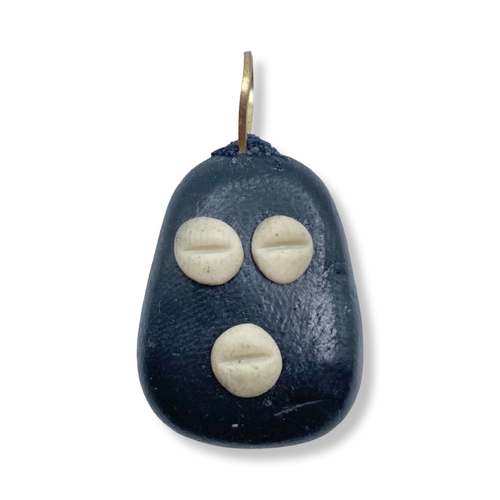Ogboni, also known as Osugbo among the Ijèbú, is a fraternal organization deeply rooted in the Yoruba-speaking regions of Nigeria, the Republic of Bénin, and Togo. It also holds significance among the Edo people. This society fulfills various political and religious roles, exerting a significant influence on monarchs and serving as high courts for capital offenses.
Members of the Ogboni society are typically regarded as the nobility within the Yoruba kingdoms in West Africa.
The Iwarefa, which translates to "The Six Wise Elders," leads each Ogboni lodge. These six principal officers are the most influential figures in the area the lodge represents, serving as the inner council of advisors to the local king or viceroyal chieftain.
The influence of the Ogboni society extends across different Yoruba states, from highly centralized kingdoms like Oyo, where they played a role in checking the authority of the Oyo Mesi, to the independent towns and villages of the Ègbá and the Èkiti. They are characterized by their reverence for the personified earth (Ilè or Oduduwa), their emphasis on gerontocratic authority, and their commitment to serving the community. While Ogboni membership signifies power and prestige, their political authority was particularly prominent in decentralized groups such as the Ègbá, where they were closely involved in selecting rulers who often held symbolic positions.
In contemporary Yorubaland, Ogboni members still wield significant power and influence within their communities, largely due to their historical chieftaincies rather than official authority.
Ogboni lodges played a crucial role as commissioners of brass jewelry and sculptures in pre-colonial Yorubaland. The rust-resistant qualities of brass served as a metaphor for the enduring functions and beliefs of Ogboni adepts. Among their symbols, a pair of Ogboni initiates, one male and one female, connected by a chain and worn around the neck, was widely recognized. This pair symbolized the union of the sexes in procreation and a balanced society. Often, one or both figures held a thumb in the grip of the opposite hand, signifying the paramount Ogboni handsign denoting initiation and membership. The legacy of Ogboni extends to several fraternities in Nigeria, including the Reformed Ogboni Fraternity and the Aborigine Ogboni Fraternity, which have incorporated references and insignia from the original Ogboni. Similar traditional institutions combining political, judicial, and sacred responsibilities exist among various ethnic nationalities in southern Nigeria, such as Nze na Ozo among the Igbo-speaking southeast Nigeria and Ekpe/Ngbe/Ugbe in the Cross River region of southeastern Nigeria and southwestern Cameroon. Initiatory secret societies were a common feature of pre-colonial governance in much of West and Central Africa.
The legacy of Ogboni extends to several fraternities in Nigeria, including the Reformed Ogboni Fraternity and the Aborigine Ogboni Fraternity, which have incorporated references and insignia from the original Ogboni. Similar traditional institutions combining political, judicial, and sacred responsibilities exist among various ethnic nationalities in southern Nigeria, such as Nze na Ozo among the Igbo-speaking southeast Nigeria and Ekpe/Ngbe/Ugbe in the Cross River region of southeastern Nigeria and southwestern Cameroon. Initiatory secret societies were a common feature of pre-colonial governance in much of West and Central Africa.





























































